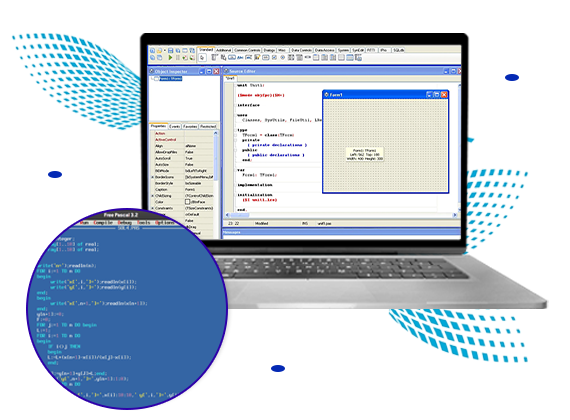Pascal was an ISO standard developed during the early 90s. However, unlike other languages since the beginning, there were various Pascal compilers and dialects. One of the favourite versions that made Pascal a widespread and well-known programming language of the 1980s and the 1990s was Turbo Pascal. With time, many object-oriented additions were made to the language, firstly by Apple and later on by Borland that evolved into Object Pascal.
Object Pascal Has Complete Support for OOP
Object Pascal offers you the tools that you require for modern OOP or Object-Oriented Programming. Though this language is not completely object-oriented like Ruby or Small talk, wherein the most basic data kinds are the instances of classes, you shall find that all concepts, which define OOP in an Object Pascal language are inheritance, encapsulation, and polymorphism.
The complex types can be defined using the classes. The classes define methods that are functions or procedures, and data known as fields in an Object Pascal. The way data is accessed can be defined by features known as properties. The properties define which setter or getter methods are used for reading or writing a field. The classes can inherit the other classes to allow you to build a data tree that you have modelled in your application.
The interfaces are a part of Exceptions and Object Pascal. You can use in-build standard exceptions, however, you can define the exceptions. The class helpers can be compared with the extension methods or PHP or Smalltalks and allow you to add procedures to the exiting classes without any requirement to get a new class.
There are further features known as Generics that define classes, which apply to a wide range of kinds and predefined classes for the advanced data structures such as dictionaries, lists, streams, and a lot more. This is explained in details in our Object Pascal assignment help desk.





 3 Bellbridge Dr, Hoppers Crossing, Melbourne VIC 3029
3 Bellbridge Dr, Hoppers Crossing, Melbourne VIC 3029

